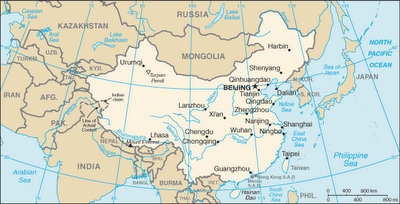China World News Industries
NAGOYA-- April 20, 1971. The U.S. table tennis team has just returned from visiting China’s capital, Beijing, shortly after the 31st World Table Tennis Championship in Nagoya, Japan. This is some groundbreaking news that has shocked the world in its entirety. Chinese and the U.S. citizens haven’t visited each other in over a decade. The presidents of the U.S. haven’t even been there in their lifetime. With more insight on the story, here’s a short article explaining the timeline of events that occurred.
China’s invitation didn’t come immediately though. In fact, they who expected it were agitated it didn’t happen sooner. While the tournament was going on, China’s premier Zhou Enlai stated hinted that he was ready to welcome the Americans with warm greetings. But, minor complications had to be dealt with first. But, that wouldn’t stop the American and Chinese teams from having their own fun. Later that week, the Chinese plays and American players had exchanged several souvenirs symbolizing peace. This quickly spread to Mao Zedong, who immediately invited the Americans to come to their country. In a call made to his team, Mao said “’considering that the American team has made the request many times with friendly enthusiasm, it has been approved to invite it, including its leaders, to visit our country.’”
Before these times though, life was taking a weird rollercoaster for the two countries. Around the year 1945, the U.S. began questioning Russia’s socialistic ways, but not China’s. Later on China severed its ties with the U.S. This conflict is best summed up by a quote from Zhou Enlai that was stated on April 14th, “The Chinese and American people used to have frequent exchanges. Then came a long period of severance. Your visit has opened the door to friendship between the peoples of the two countries.
Also, since December 18, 1970 U.S. President Richard Nixon has been trying to enter China, trying to become the first president to do so. A president travelling there may seem leaps and bounds away, but a quote by Mao Zedong says otherwise when he says “’He might come quietly in a plane, either as a tourist or a president…I don’t think I’ll wrangle with him, though I’ll criticize him.’”


